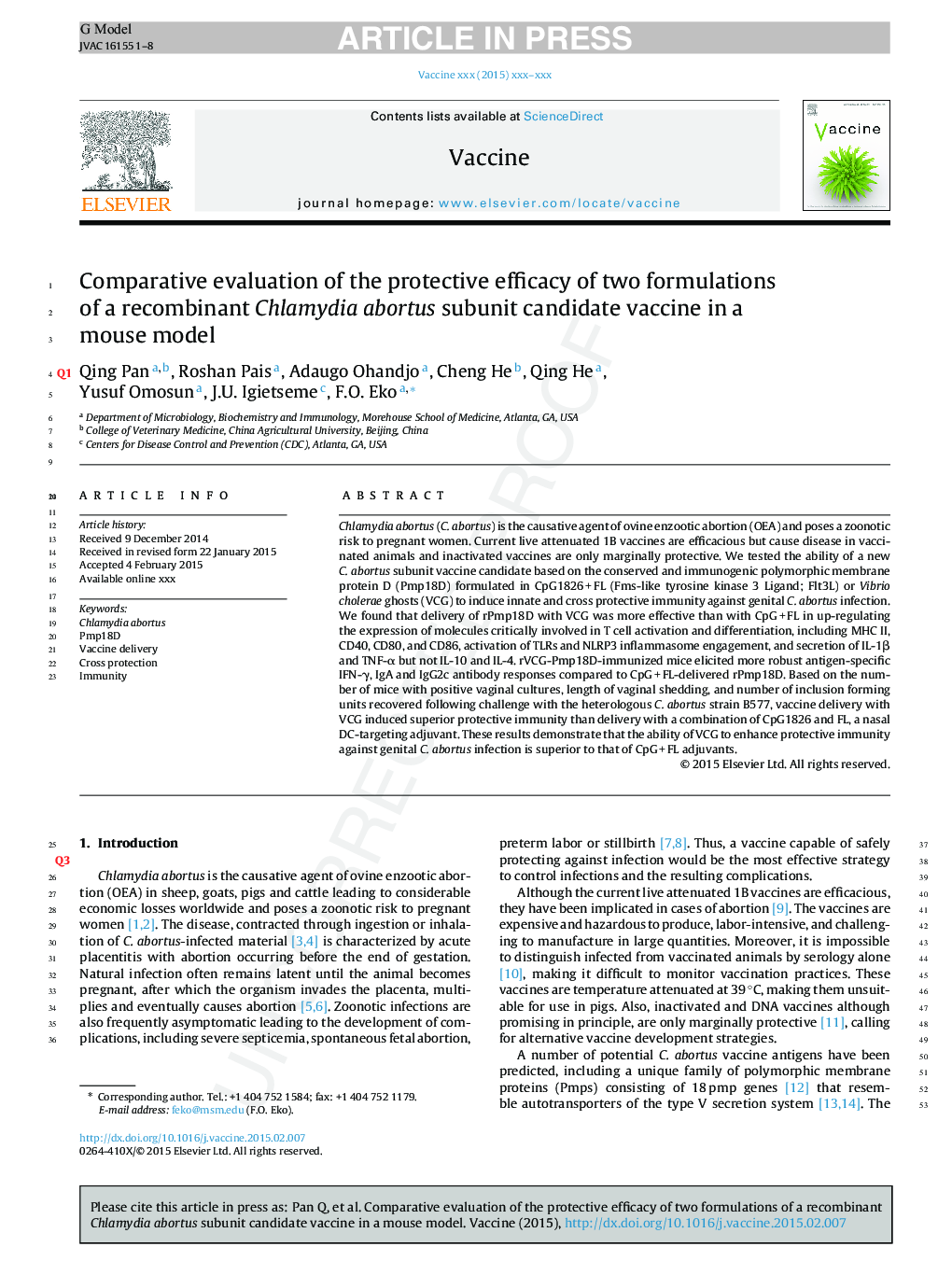| Article ID | Journal | Published Year | Pages | File Type |
|---|---|---|---|---|
| 10965704 | Vaccine | 2015 | 8 Pages |
Abstract
Chlamydia abortus (C. abortus) is the causative agent of ovine enzootic abortion (OEA) and poses a zoonotic risk to pregnant women. Current live attenuated 1B vaccines are efficacious but cause disease in vaccinated animals and inactivated vaccines are only marginally protective. We tested the ability of a new C. abortus subunit vaccine candidate based on the conserved and immunogenic polymorphic membrane protein D (Pmp18D) formulated in CpG1826 + FL (Fms-like tyrosine kinase 3 Ligand; Flt3L) or Vibrio cholerae ghosts (VCG) to induce innate and cross protective immunity against genital C. abortus infection. We found that delivery of rPmp18D with VCG was more effective than with CpG + FL in up-regulating the expression of molecules critically involved in T cell activation and differentiation, including MHC II, CD40, CD80, and CD86, activation of TLRs and NLRP3 inflammasome engagement, and secretion of IL-1β and TNF-α but not IL-10 and IL-4. rVCG-Pmp18D-immunized mice elicited more robust antigen-specific IFN-γ, IgA and IgG2c antibody responses compared to CpG + FL-delivered rPmp18D. Based on the number of mice with positive vaginal cultures, length of vaginal shedding, and number of inclusion forming units recovered following challenge with the heterologous C. abortus strain B577, vaccine delivery with VCG induced superior protective immunity than delivery with a combination of CpG1826 and FL, a nasal DC-targeting adjuvant. These results demonstrate that the ability of VCG to enhance protective immunity against genital C. abortus infection is superior to that of CpG + FL adjuvants.
Related Topics
Life Sciences
Immunology and Microbiology
Immunology
Authors
Qing Pan, Roshan Pais, Adaugo Ohandjo, Cheng He, Qing He, Yusuf Omosun, J.U. Igietseme, F.O. Eko,
